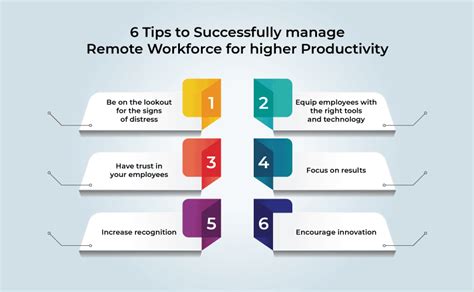Intro
Explore remote jobs for registered nurses and discover flexible career options that offer work-life balance. Learn about telehealth nursing, travel nursing, and online education opportunities. Find out how to transition to a remote RN role and advance your career with our comprehensive guide to remote nursing jobs.
As a registered nurse, you're likely no stranger to the demands of a traditional hospital setting. Long hours, high stress, and a never-ending stream of patients can take a toll on even the most dedicated healthcare professionals. But what if you could maintain your passion for nursing while enjoying a better work-life balance? Remote jobs for registered nurses offer a flexible career path that's gaining popularity, and for good reason.
With the rise of telehealth and digital healthcare, the opportunities for RNs to work remotely are expanding rapidly. From telehealth nursing to case management, and from health coaching to medical writing, there are numerous remote job options available to RNs. In this article, we'll explore the benefits, types of remote jobs, and steps to transition into a flexible career as a registered nurse.

Benefits of Remote Jobs for Registered Nurses
Remote jobs for RNs offer a wide range of benefits, including:
- Flexibility and autonomy: Work from anywhere, at any time, as long as you have a stable internet connection.
- Better work-life balance: Spend more time with family and friends, pursue hobbies, or simply enjoy a quieter work environment.
- Increased job satisfaction: Many RNs report higher job satisfaction when working remotely, citing reduced stress and improved morale.
- Professional growth: Remote jobs can provide opportunities for professional development, such as learning new skills or taking on leadership roles.
- Broader job opportunities: With remote work, you're no longer limited by geographical location. You can work with organizations from all over the world.
Types of Remote Jobs for Registered Nurses
The types of remote jobs available to RNs are diverse and growing. Some examples include:
- Telehealth nursing: Provide patient care and consultation via phone, video, or messaging platforms.
- Case management: Coordinate patient care, develop treatment plans, and communicate with healthcare teams remotely.
- Health coaching: Work with patients to set and achieve health goals, provide education, and support behavior change.
- Medical writing: Create content for healthcare organizations, including blog posts, articles, and educational materials.
- Clinical research: Participate in studies, collect data, and analyze results from the comfort of your own home.
- Nurse education: Teach nursing students, develop curricula, and create educational resources online.
- Health IT project management: Oversee the development and implementation of healthcare technology projects.
Steps to Transition into a Remote Career as a Registered Nurse
If you're interested in transitioning into a remote career as a registered nurse, follow these steps:
- Update your skills: Invest in courses or training programs that focus on telehealth, digital healthcare, or other relevant areas.
- Build your professional network: Connect with other RNs who work remotely, attend conferences, or join online communities to learn about job opportunities.
- Create a professional online presence: Develop a strong LinkedIn profile, personal website, or blog to showcase your skills and experience.
- Explore job opportunities: Search for remote job openings on websites like FlexJobs, Remote.co, or We Work Remotely.
- Prepare for remote work: Set up a dedicated workspace, invest in necessary equipment, and establish a routine to maintain productivity.

Challenges and Solutions for Remote RNs
While remote jobs offer many benefits, they also present unique challenges. Some common issues include:
- Social isolation: Connect with colleagues and friends through video conferencing, online communities, or social media.
- Technical issues: Invest in reliable equipment, internet, and software to minimize technical problems.
- Boundary setting: Establish clear boundaries between work and personal life to maintain a healthy work-life balance.
- Continuing education: Stay up-to-date with industry developments and best practices through online courses, webinars, or conferences.
Best Practices for Remote RNs
To succeed as a remote RN, follow these best practices:
- Establish a routine: Create a schedule and stick to it to maintain productivity and work-life balance.
- Communicate effectively: Regularly check-in with colleagues, patients, and managers to ensure clear communication.
- Prioritize self-care: Make time for exercise, meditation, or other activities that promote physical and mental well-being.
- Stay organized: Use tools like to-do lists, calendars, or project management software to stay on top of tasks and deadlines.

Conclusion
Remote jobs for registered nurses offer a flexible and fulfilling career path that's gaining popularity. With the right skills, training, and mindset, RNs can thrive in a remote work environment. Whether you're looking to reduce stress, increase job satisfaction, or simply enjoy a better work-life balance, remote jobs can provide the flexibility and autonomy you need. So why not take the leap and explore the world of remote nursing?
What are the most in-demand remote jobs for RNs?
+Telehealth nursing, case management, and health coaching are among the most in-demand remote jobs for RNs.
Do I need special training or certifications for remote nursing jobs?
+While some remote nursing jobs may require special training or certifications, many employers provide on-the-job training or support continuing education.
Can I work as a remote RN if I don't have experience in telehealth?
+Yes, many employers provide training and support for RNs new to telehealth. Additionally, some remote nursing jobs may not require telehealth experience.
